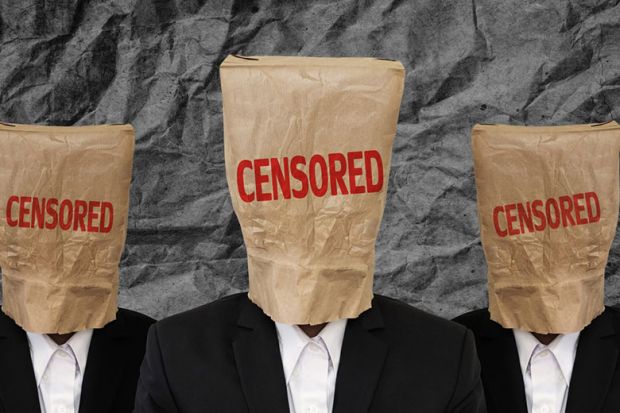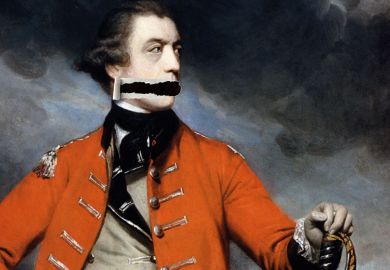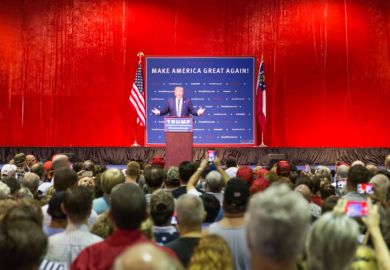Donald Trump is not the only president in the US to have run into trouble with a porn star.
A row of a rather different type to that starring President Trump and Stormy Daniels blew up around the president of the University of Wisconsin-La Crosse last year, when he invited a former pornographic actress turned sex educator to speak on campus.
What followed was an extraordinary demonstration of how exposed university administrators can be when they are deemed (in this case by the university system president) to have done something to put their institution’s reputation at risk or, worse still, damaged its prospects of securing support from conservative politicians with their hands on the purse strings.
The details of the case are set out in our cover story this week, which asks the urgent question of how much freedom of speech university administrators have in the current climate.
But imagine, for a moment, that like the Wisconsin La-Crosse president you had been publicly hauled over the coals, had to dig deep into your own pocket in an attempt to sort out the dispute, and then been denied a pay rise in a move that may or may not have been related to this alleged faux pas.
Would you have retreated from the debate and kept your own counsel when a Times Higher Education reporter came calling?
Many would. But not Joe Gow, who stands firmly beside his decision to invite Nina Hartley to his campus to speak, stating that “we have a very clear policy on freedom of expression, and what I did was entirely consistent with that”.
The charged atmosphere around freedom of speech, which is at its most febrile in the US, has been energised further by Trump’s latest foray into the issue.
Building on his threat in 2017 to withdraw federal funding from the University of California, Berkeley, when it cancelled a talk by the right-wing provocateur Milo Yiannopoulos on safety grounds, Trump last week pledged to issue an executive order axing funds for any university that did not uphold freedom of speech.
As so often with Trump, there was little or no detail on how this would work, and the grounds for the latest outburst were disingenuous at best.
The announcement appeared to be linked to a recent assault on another conservative activist at Berkeley, even though the university had undeniably allowed him to speak on campus, and the suspect arrested had no link to the institution.
Such details did not, however, stop the US president making hay with an issue that clearly appeals to his supporters, as we detail in our analysis of the furore this week.
It would be a mistake, though, to paint this as a problem solely of the right’s making, or just a pet project of a tub-thumping US president.
Take the case of Greg Craven, vice-chancellor of the Australian Catholic University, who last month wrote a fairly dry opinion piece for The Australian newspaper in which, as a legal scholar, he debated the system’s ability to deliver justice in the social media age, in the context of Cardinal George Pell’s conviction in a high-profile sexual abuse trial.
Craven’s point was not about Pell’s guilt or otherwise, nevertheless it prompted calls by members of the National Tertiary Education Union at ACU for him to be sanctioned for his “repugnant” actions.
As for Trump, his talent is not lighting fires so much as latching on to issues and throwing petrol on to the flames, and the reality is that there has been an ideological battle playing out on university campuses for years, with free speech as the chosen battleground.
This, ultimately, is the problem facing university presidents, whether in terms of their own ability to speak freely as individuals, as the leaders of academic institutions, or as they make decisions about freedom of speech on their campuses more widely.
What should be the purest of issues has become among the most politicised of our age, riven with competing agendas and ideologies and as murky as hell.
In that environment, it is admirable that Gow has chosen to speak so freely about his own run-in with the ideologues. It is also a depressing sign of the times that this should be remarkable.
POSTSCRIPT:
Print headline: Too risky to speak out?
Register to continue
Why register?
- Registration is free and only takes a moment
- Once registered, you can read 3 articles a month
- Sign up for our newsletter
Subscribe
Or subscribe for unlimited access to:
- Unlimited access to news, views, insights & reviews
- Digital editions
- Digital access to THE’s university and college rankings analysis
Already registered or a current subscriber? Login




